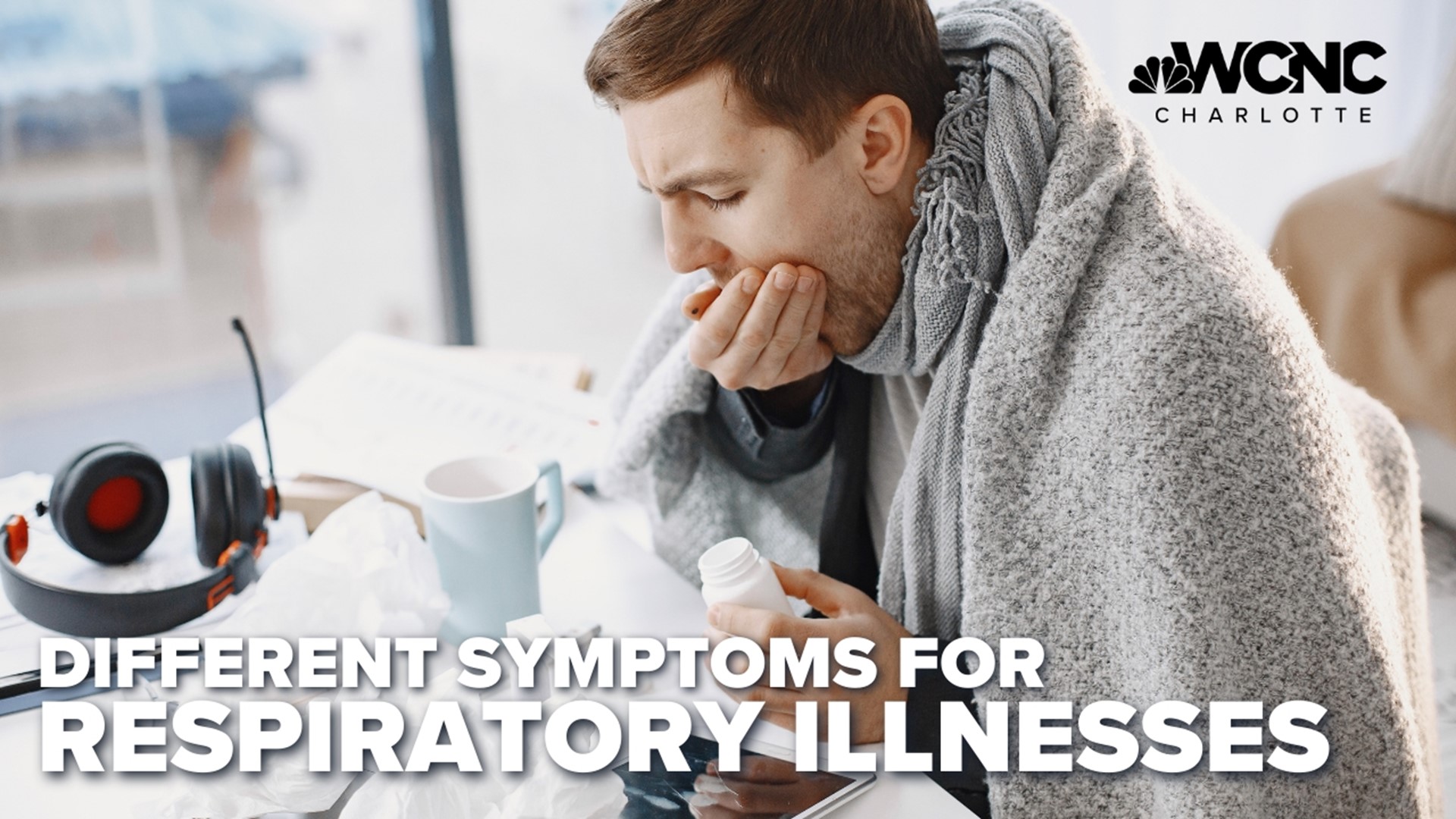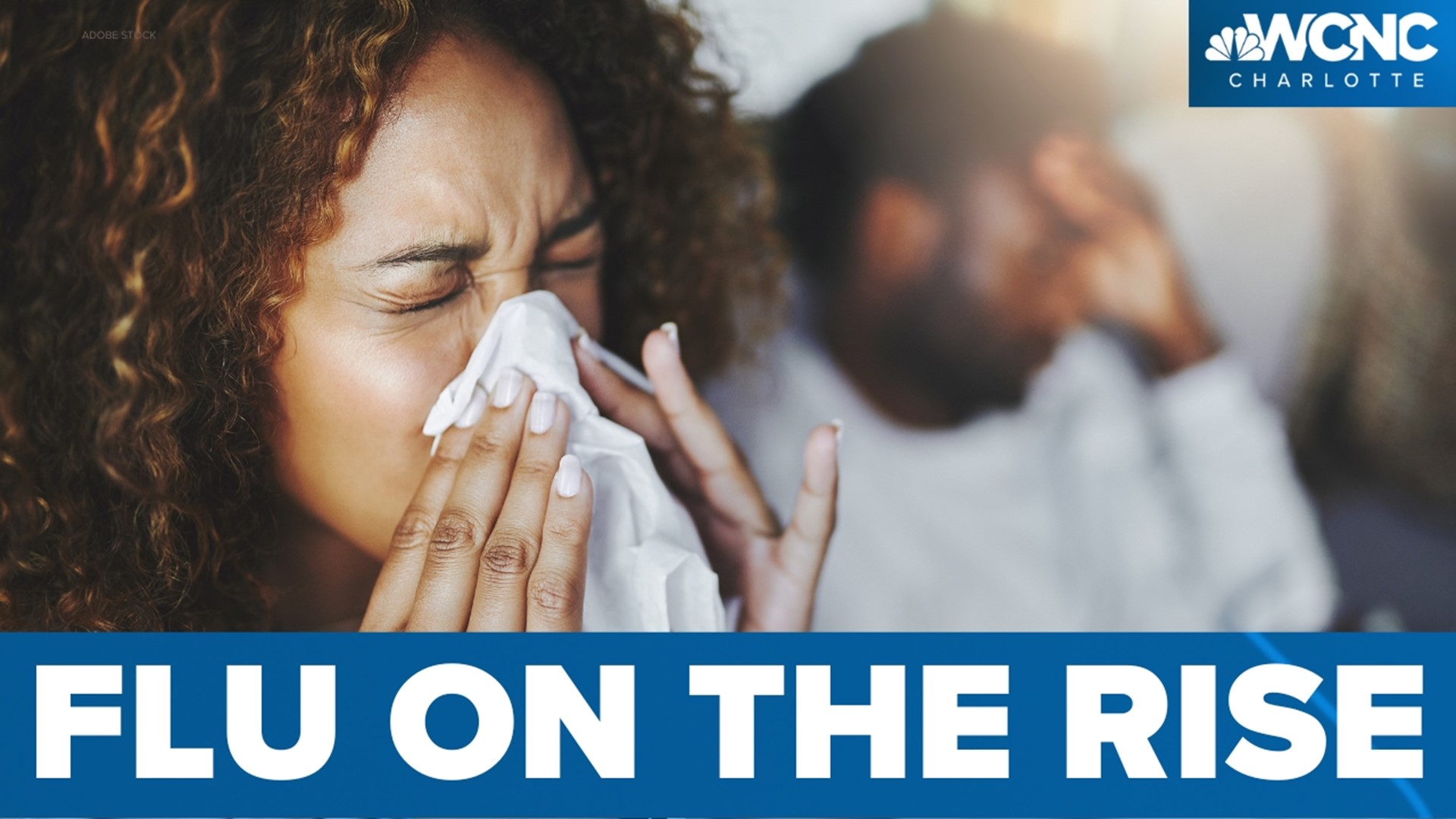CHARLOTTE, N.C. — The growing triple threat of the flu, COVID-19, and RSV is putting many on edge just 10 days away from Christmas.
According to the CDC, North Carolina currently has 'very high' levels of the flu.
As infections rise in the Charlotte region, health officials say they are concerned about holiday gatherings potentially fueling the spread of these viruses.
“We are continuing to see higher than normal visit volumes and demands across the board," Dr. Lyn Nuse, senior medical director of Atrium Health Levine Children’s pediatric primary care, said.
State data shows nearly 3,000 people have tested positive for the flu in the first week of December alone. In addition, more than 11,000 COVID-19 cases were reported during the same week. RSV is also prevalent.
“One family member gets sick and the whole family gets sick and that continues to be true whether it's RSV, flu, or COVID," Nuse said.
As these illnesses continue to spread, it can be hard to tell the difference between the flu, COVID, and RSV.
Health officials say certain illnesses have symptoms that others don't. They can have all or some of the same symptoms like a fever, cough, or runny nose.
“If someone in your family has a running nose, congestion, cough, rather than assuming its allergies, which are very common in this area this time of year, given what we’re seeing it’s better to assume it’s the start of something that’s infectious," Nuse said.
While most doctors will rely on a lab test to tell the difference in the virus, there are subtle differences.
According to Annapolis Pediatrics, with the cold, you will not have a headache and body aches or wheezing. With RSV, you will not have a sore throat, or headache and body aches.
“RSV also tends to stick to surfaces more so it’s easier to pass through touching a surface and spreading from there," Nuse said.
Meanwhile, the flu and COVID have all symptoms of fever sore throat, cough and congestion, body aches, and wheezing.
But no matter which virus you are dealing with you should seek immediate medical care if your child experiences trouble breathing.
Health officials say it's important to take precautions like washing your hands, making sure you're up to date with vaccinations, and you can wear a mask.
“Good hand washing goes a really long way in trying to prevent infection spread," Nuse said.
Experts say if you are sick, just stay home.
“The more we're out mixing with other people the more we're exposing ourselves to germs and also spreading germs," Nuse said.
Contact Lexi Wilson at lwilson@wcnc.com and follow her on Facebook, Twitter, and Instagram.


